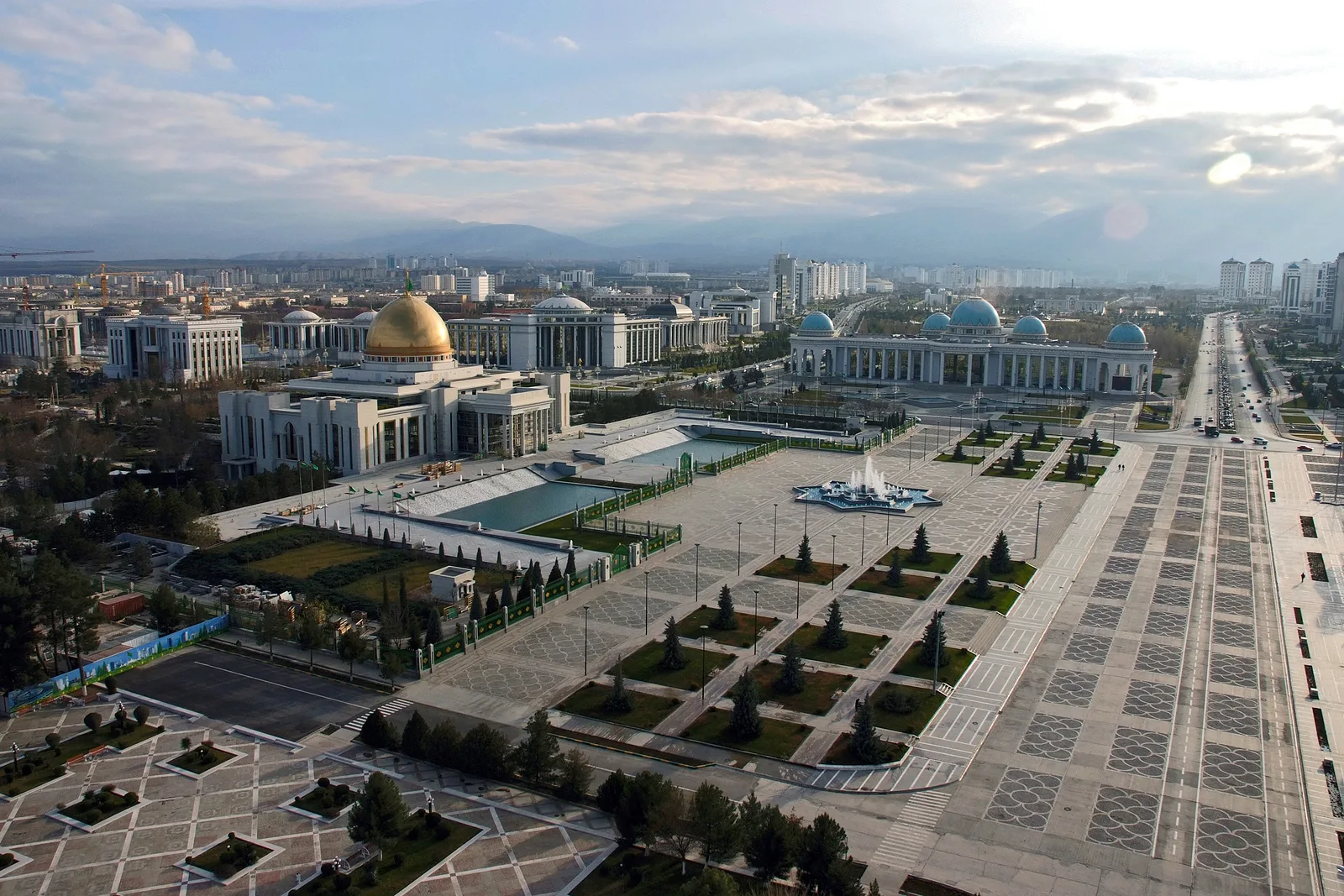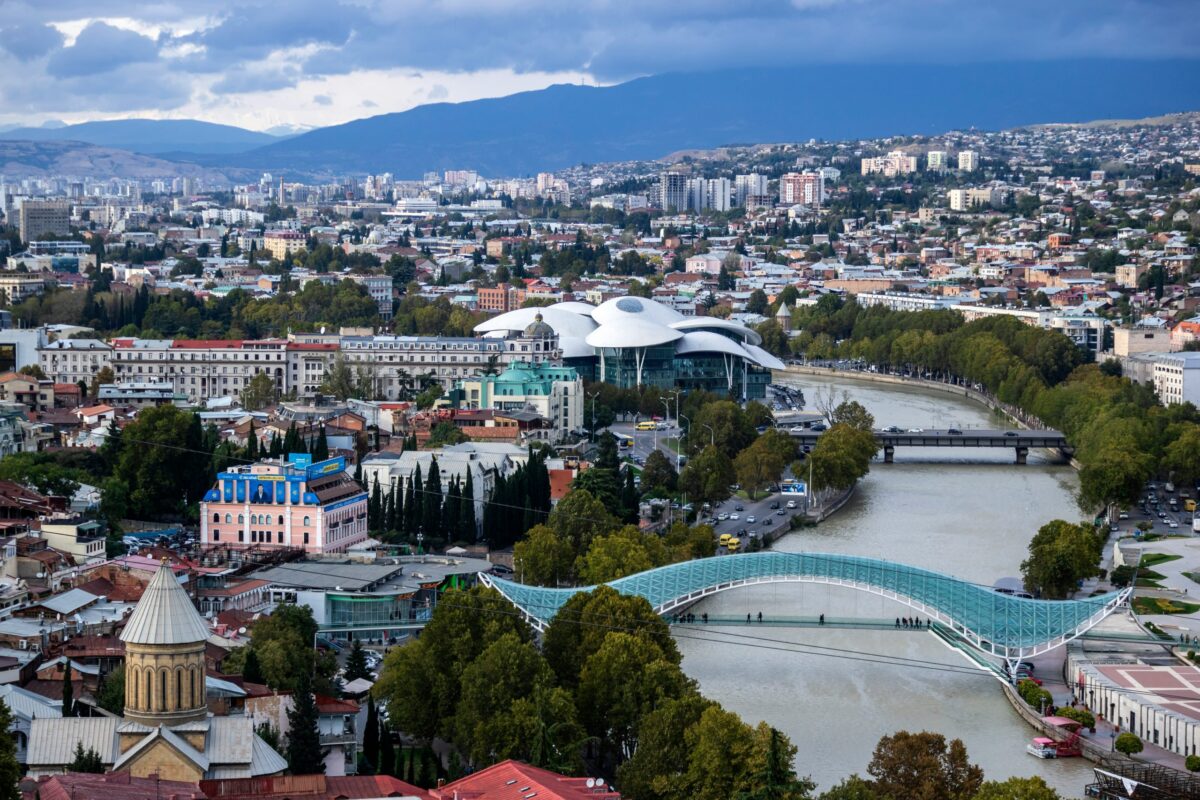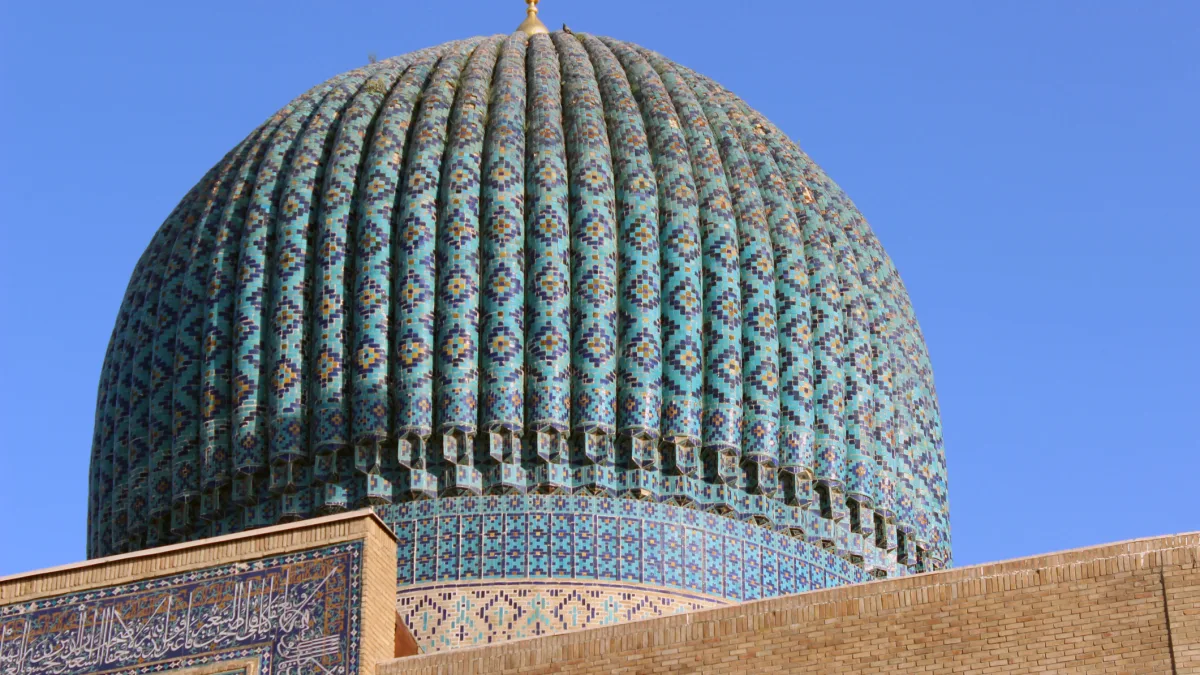On January 13, at Abu Dhabi’s Radisson Blu Hotel, three MPs from Georgia’s ruling Georgian Dream party roughed up a fellow countryman, Lasha Gabitashvili, after he called them ‘traitors’ and ‘Russian slaves’.
Considering the sheikhdom’s zero-tolerance policy towards disturbances to public order, the MPs in question—Irakli Zarkua, Viktor Zanikidze and Gela Samkharauli—were somewhat fortunate to have got off lightly with a mere fine.
Though it is unclear whether diplomatic immunity left local authorities no choice but to effectively give them a slap on the wrist for the kind of thuggery that would have landed most foreign guests in jail, Tbilisi’s recent courtship of the UAE Government may better explain such uncharacteristic leniency.
Later that month, Georgian Prime Minister Irakli Kobakhidze paid acourtesy call on strongman Emirati President Mohammed bin Zayed Al Nahyan in the federation’s capital.
Admittedly, Kobakhidze’s working visit to Abu Dhabi was not about damage control but rather tapping into alternative, emerging markets for foreign direct investment (FDI)as Georgia finds itself on a collision course with both the United States and the European Union over democratic backsliding.
His trip, in that regard, was a resounding success not least since he ended up finalising a six billion US dollars deal with UAE-based property developer Eagle Hills—the largest ever post-independence capital injection into the Georgian economy meant to serve as a catalyst for other regional investors to follow suit.
This multi-city giga-project comes on the heels of Abu Dhabi-headquartered AD Ports Group acquiring a 60 per cent majority stake in Tbilisi Dry Portlast March and the ratification of a Comprehensive Economic Partnership Agreement (CEPA)between the UAE and Georgiashortly thereafter.
While the Emiratis are understandably eager to capitalise on Georgia’s strategic location along the ‘Middle Corridor’, the big-ticket real estate ventures they are pursuing in Tbilisi and Batumi against the backdrop of major domestic unrest is highly suspect.
Bullish on ‘New Europe’
It is no secret that the UAE has been probing for soft tissue and seeking to export its ‘authoritarian stability’ template to Central and Eastern Europe. Implicit in Georgian Dream’s ‘War or Peace’ sloganeering was how the ensuing erosion of civil liberties and press freedom would be more than offset by assured insulation from future Russian aggression.
Billionaire oligarch and party founder Bidzina Ivanishviliis largely responsible for ramming this social contract down the throats of ordinary Georgians and overseeing unprecedented human rights abuses against those at odds with their country’s current geopolitical orientation.
Eagle Hills’ chairman Mohamed Alabbaris known to be especially bullish on what he describes as ‘New Europe’, having launched luxury residential complexes such as the Belgrade Waterfront in Serbia, Riga Waterfront in Latvia and Durrës Yachts and Marina in Albania.
More recently, however, his grand plans to build a 12 billion US dollars ‘Mini Dubai’ neighbourhood in Budapest that would have included Europe’s tallest skyscraper went up in smoke amid fierce opposition from the Hungarian capital’s mayor Gergely Karàcsony.
The city council’s grounds for exercising its preemptive rights and throwing a spanner in the works were the ‘flagship project’s’ aesthetic incongruity with Budapest’s skyline as well as apprehension about the potential embezzlement of state funds. Meanwhile, Alabbar was handed a long overdue reality check.
Leverage
Nevertheless, Eagle Hills’ preparedness to bet big on Georgia just as Georgian Dream consolidates power and democracy remains in retreat is a noteworthy case of Abu Dhabi advancing its interests beyond West Asia.
Affluent Russians who relocated in droves to Tbilisi and Batumi following the September 2022 partial mobilisation drive will likely constitute the lion’s share of takers for its high-end condominiums.
Already the sixth largest investor in Georgia and its biggest trading partner in the Arab League, the UAE will enjoy even greater leverage over the Black Sea nation upon completion of the Krtsanisi Parkin Tbilisi and Gonio Marina in Batumi.
The risk, of course, is that Abu Dhabi might weaponise Eagle Hills’ burgeoning property empire and other onshore holdings by private Emirati companies to impose its will on Georgian society at large and encourage Georgian Dream to further stifle dissent.
Seeing as holidaymakers from the Middle East are a key target audience for Georgia’s tourism industry, the UAE could take steps to dissuade its citizens and residents from vacationing there by scaling back direct flights and issuing travel warnings or bans in light of continued, large-scale demonstrations.
At the same time and mindful of its deeply conservative native population, the Emirati leadership is bound to welcome and fuel prevailing anti-LGBT+ sentiment that has alienated Georgia from its European partners. Allowing the UAE to buy up much of Georgia may also instil a false sense of entitlement in its nationals and give them licence to misbehave there.
Eastward pivot
It is worth recalling that Kobakhidze frequented the UAE yet again in mid-February to attend the 2025 World Government Summit (WGS)in Dubai, where he outlined the “common interests and goals” Georgia shares with the Persian Gulf monarchy.
The cash bonanza Georgian Dream managed to secure from the Emiratis a month prior was a vindication of their rabid Euroscepticism which could turbocharge Georgia’s eastward pivot in open defiance of its constitutional obligation to push for closer EU integration.
Make no mistake, Tbilisi has drawn inspiration from Abu Dhabi’s ‘zero problems’ foreign policy doctrine to carve out its own independent international relations roadmap according to which mercantilism takes precedence over ethics or values.
In an interview with Euronews two weeks ago, Kobakhidze acknowledged that Georgia’s refusal to partake in the Western-led sanctions crusade against Russia—a country which still occupies 20 per cent of Georgian territory—was a ‘pragmatic move’ that helped prevent a GDP contraction of 10-18 per cent. As Russo-Georgian ties rapidly thaw, the UAE could emerge as a possible venue for backchannel dialogue.
Filling the USAID void
With the Donald Trump administration pulling the plug on USAID’s overseas grants and subsidies, Abu Dhabi may sense an opportunity to fill the resultant financial void in Georgia’s media landscape as part of an image-building exercise.
Lest we forget the Emiratis sought full ownership of prestigious UK publications—namely The Spectator and The Daily Telegraph—in early 2024 up until their bid as eventually blocked for fear of the family dictatorship undermining and laying waste to these outlets’ editorial independence.
The multi-billion dollar construction scheme undertaken by Eagle Hills in Georgia’s main metropolises is being dressed up as a humanitarian endeavour rather than a profit-making initiative.
Kobakhidze argued that this initiative would “create thousands of new, high-paying jobs” when, in reality, most of these openings will be precarious, sales-focused and off-limits to non-Russian speaking applicants—not to mention the environmental degradation and inflation local inhabitants could face.
On account of the punitive measures imposed by the US, EU and UK on senior Georgian Dream figures in the aftermath of the ‘neither free nor fair’ Georgian parliamentary elections in late October, enhanced cooperation between Georgia and the UAE could see Ivanishviliand his sanctioned inner circle mobilise their offshore assets to a non-Western banking hub like Dubai.
Although Georgia’s deviation from European norms and standards has been principally attributed to malign Russian and Chinese activity in the country, the UAE’s role in propelling Georgian Dream’s state capture must not be overlooked.
Nipping ‘Little’s Sparta’s’ interventionism in the bud should therefore be a near-term priority for the Georgian opposition if their country is to ever stand a chance of joining the European family.
Photo by Mostafa Meraji on Unsplash.







